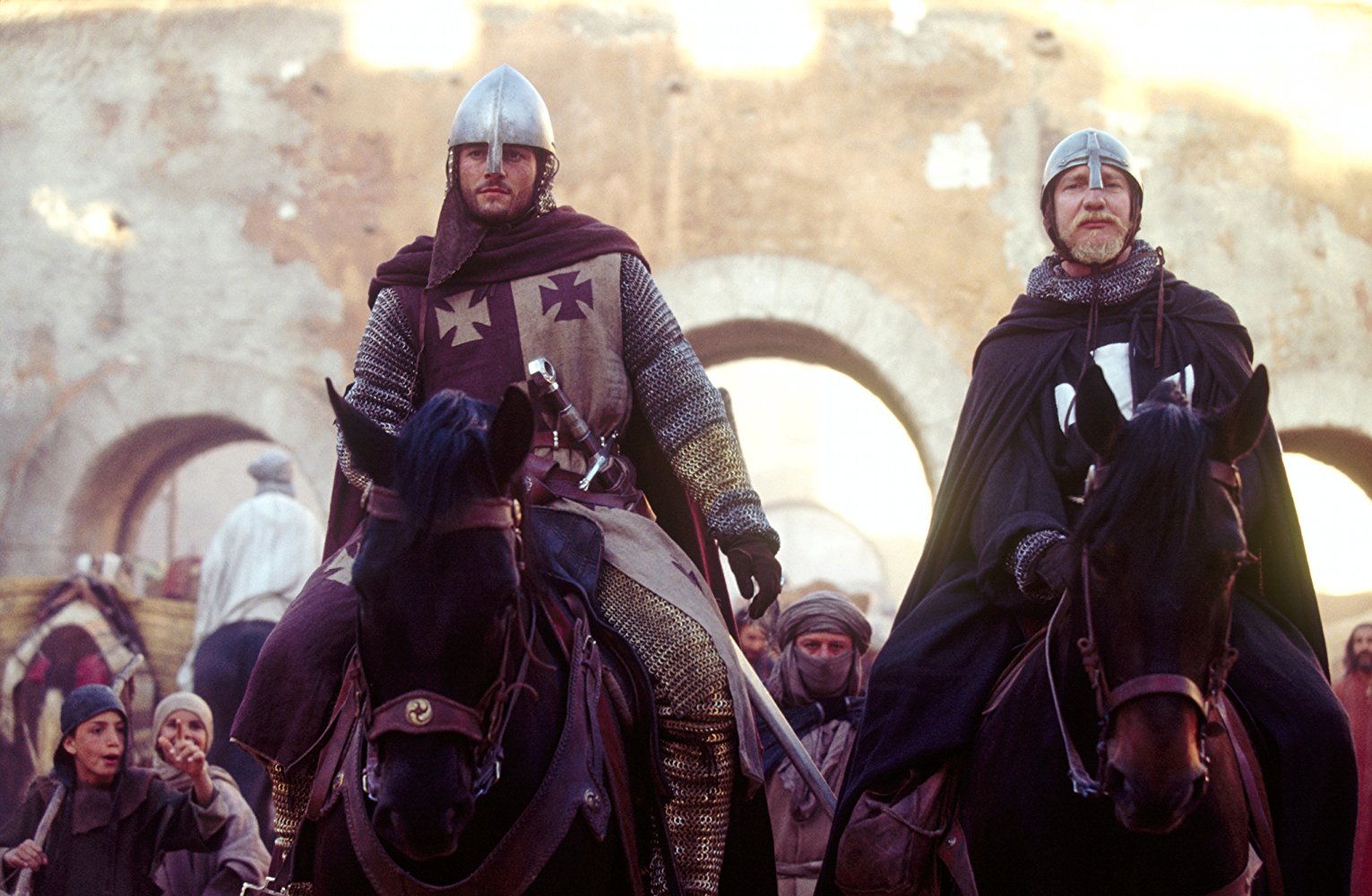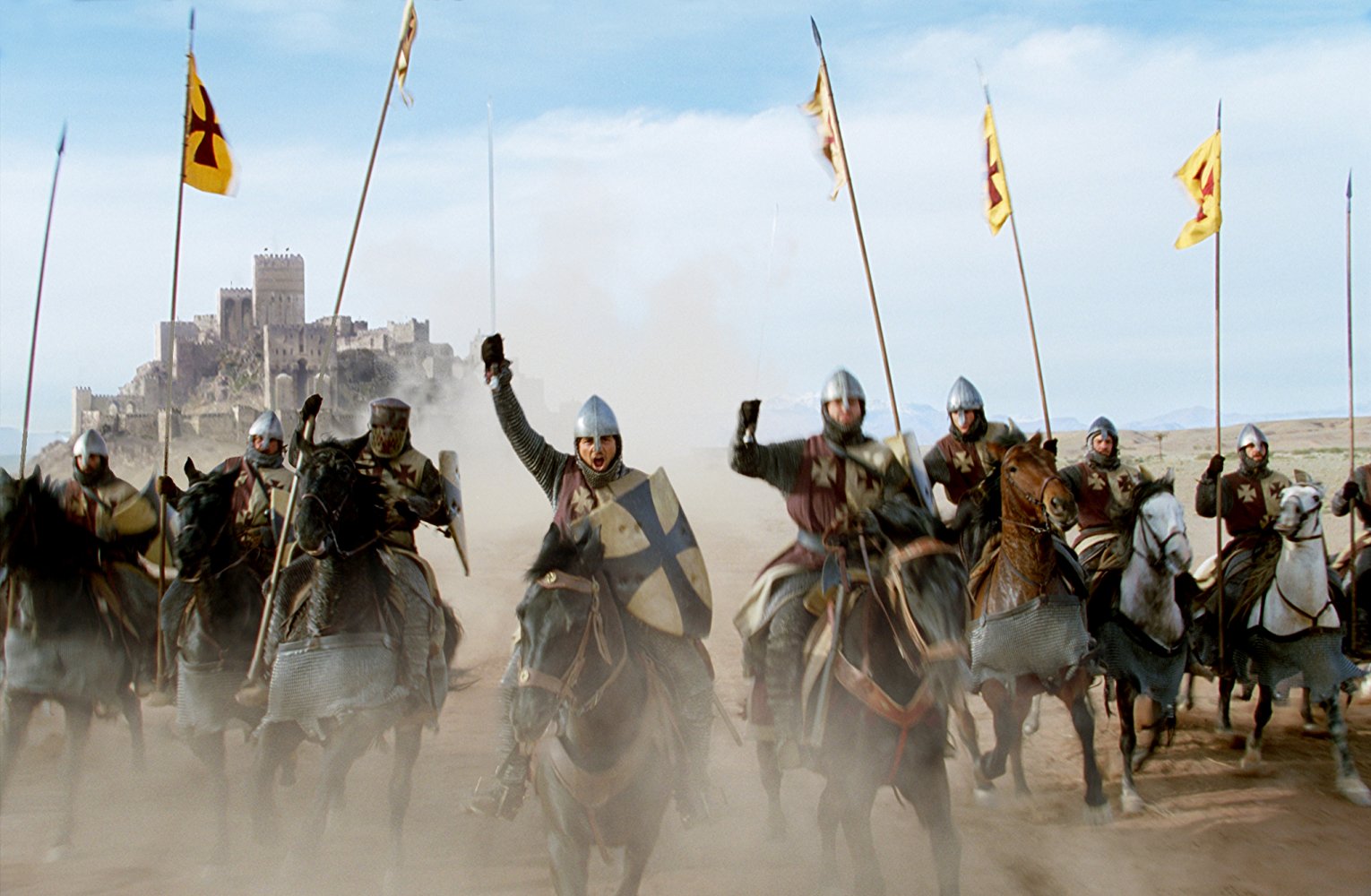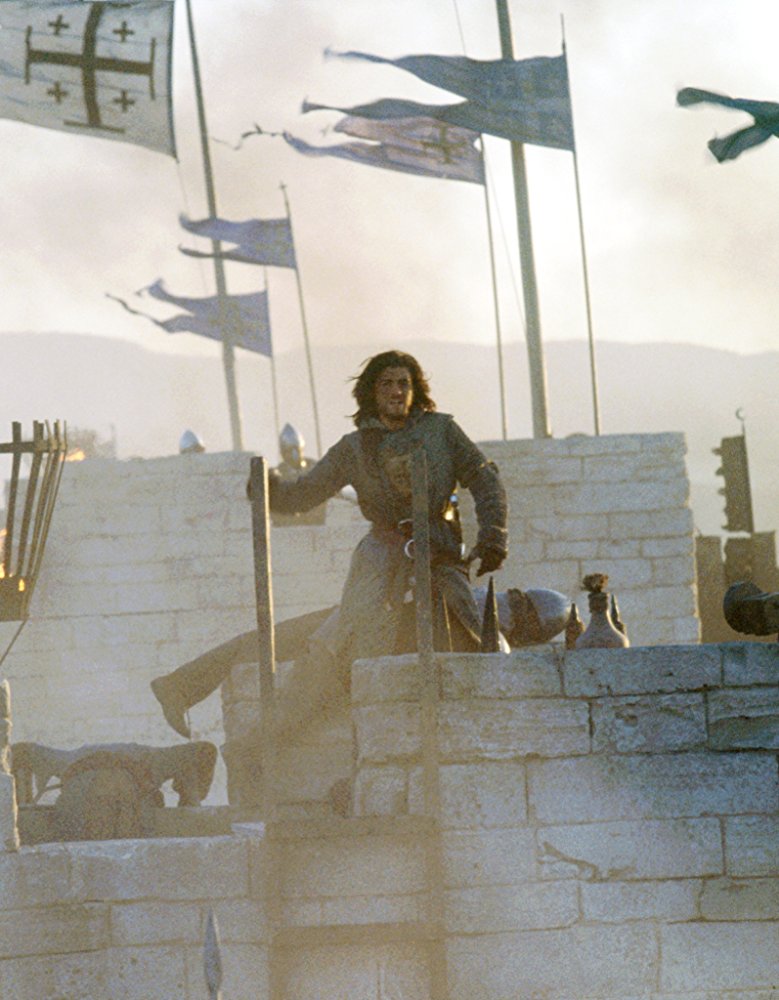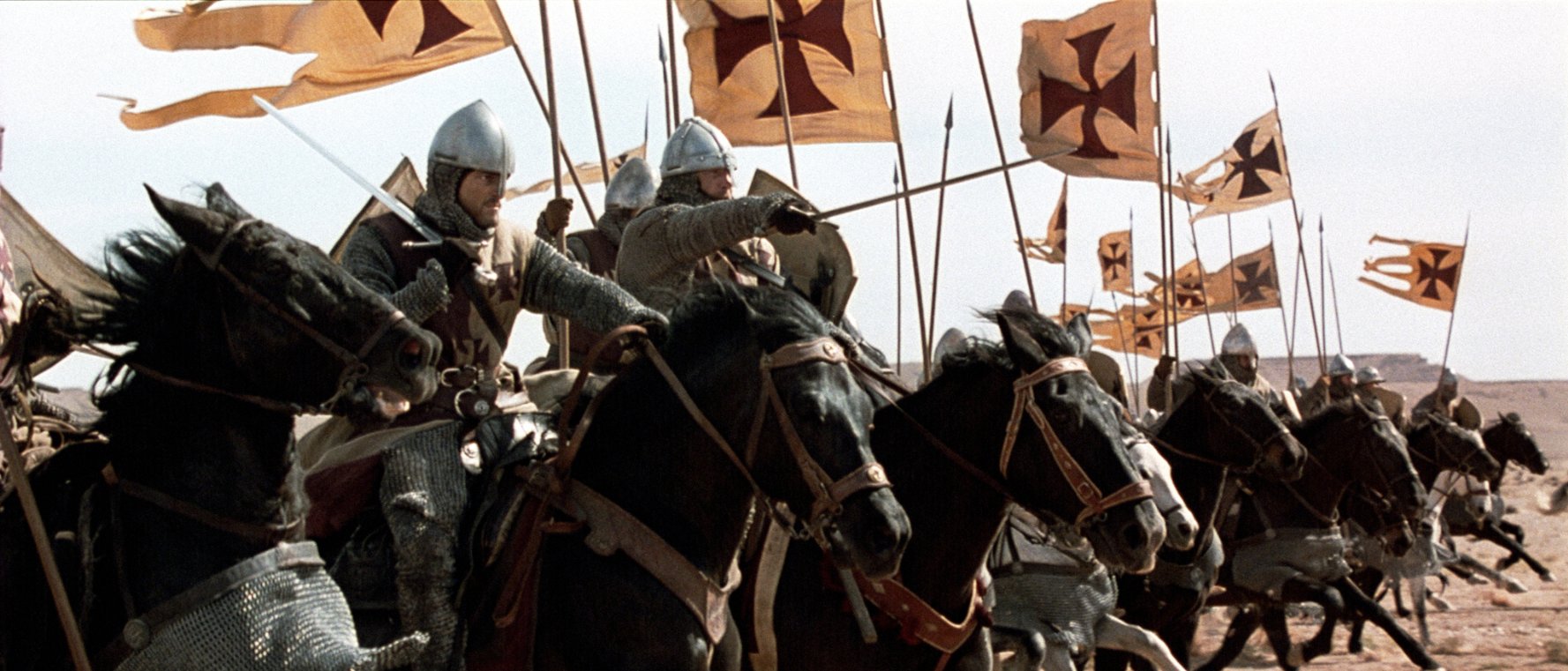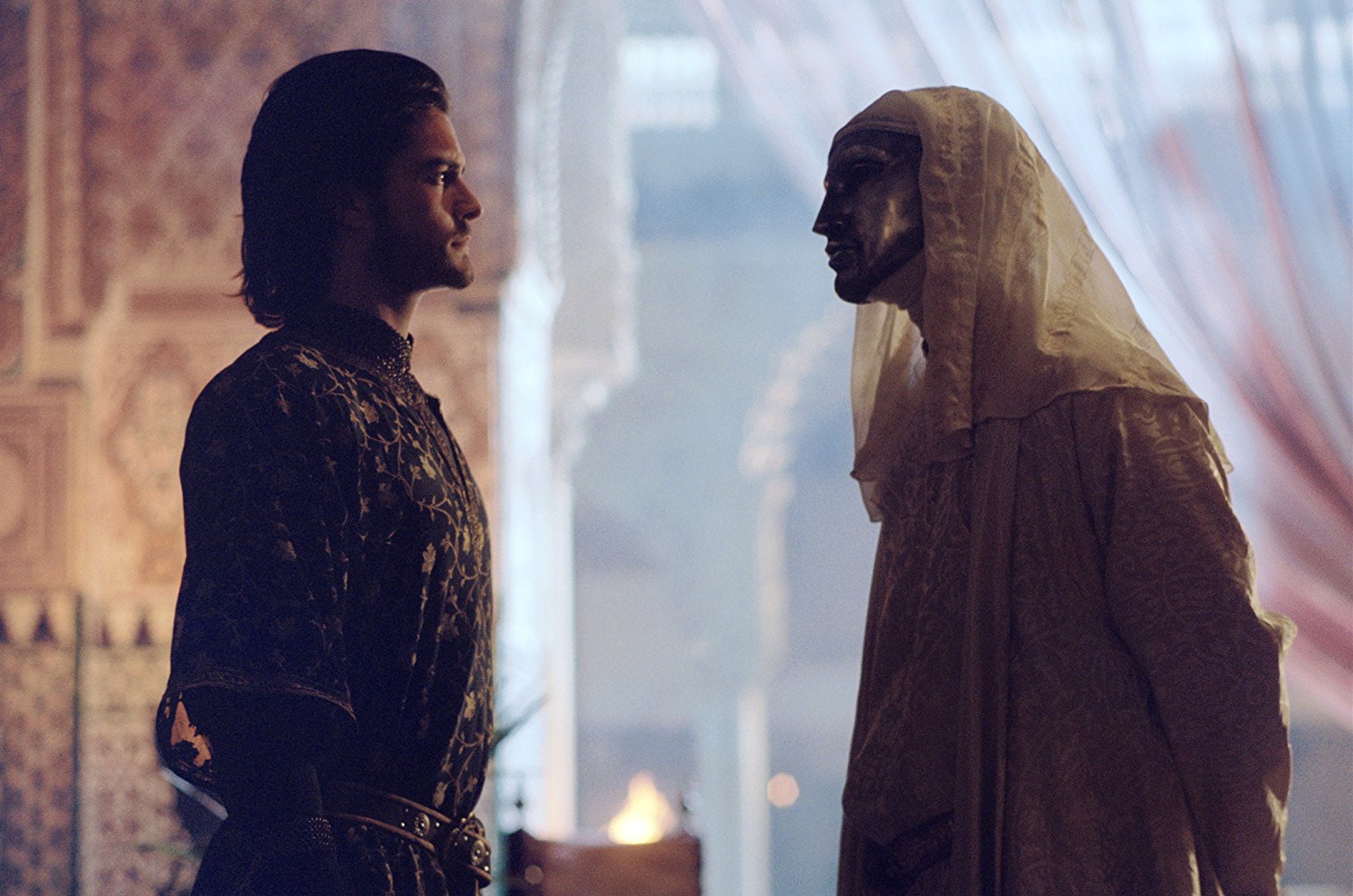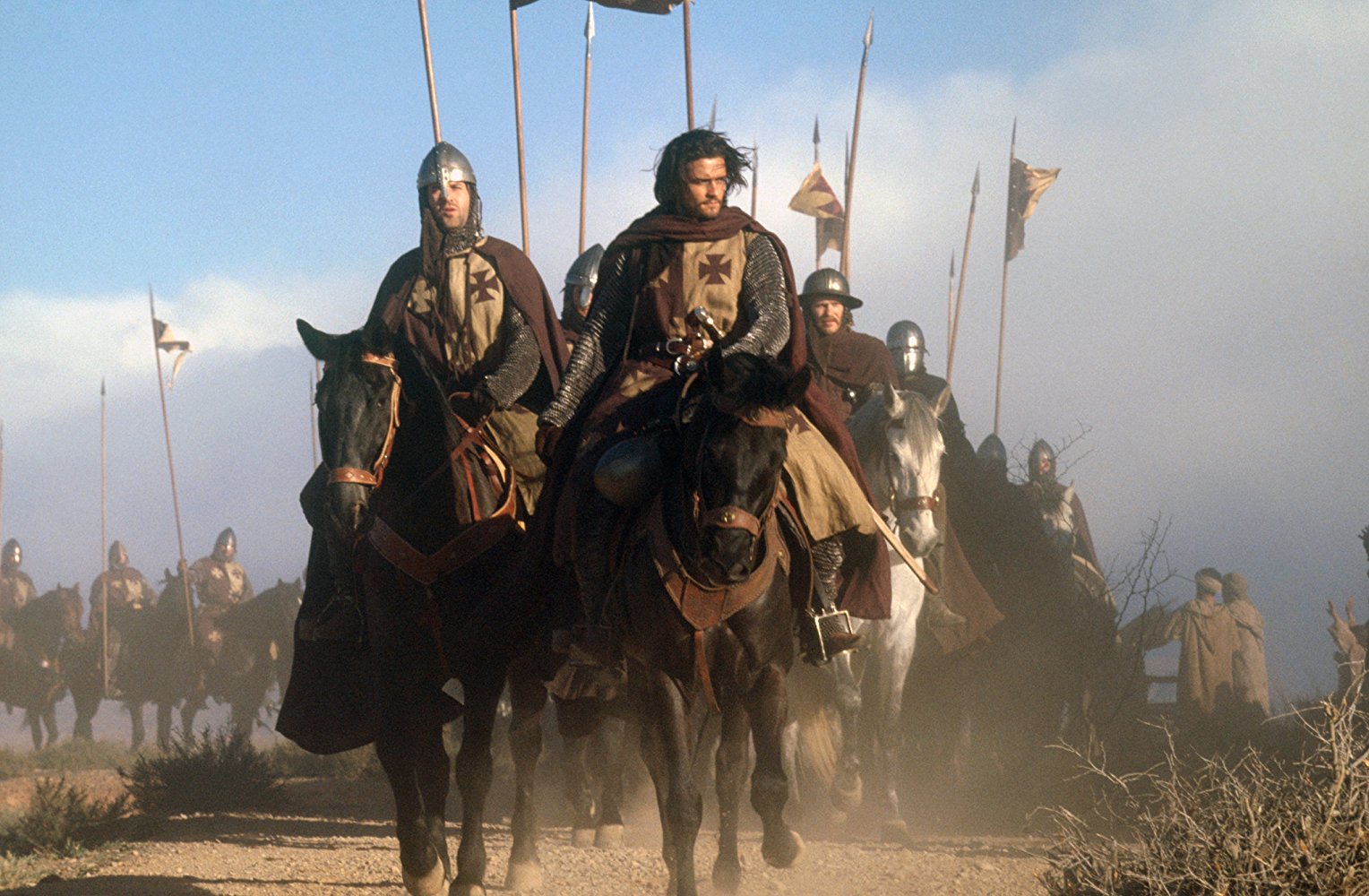Balian of Ibelin (ca. 1140 - 1193) was one of the most important lords of the Crusader states during the 12th century. Balian was a vassal to his older brother, Baldwin, lord of Ramla, and through him, vassal to the King of Jerusalem.In 1174, Balian married Maria Komnene (ca. 1154-1208), a Byzantine princess by birth, whose first husband had been K...
Show more »
Balian of Ibelin (ca. 1140 - 1193) was one of the most important lords of the Crusader states during the 12th century. Balian was a vassal to his older brother, Baldwin, lord of Ramla, and through him, vassal to the King of Jerusalem.In 1174, Balian married Maria Komnene (ca. 1154-1208), a Byzantine princess by birth, whose first husband had been King Amalric I of Jerusalem (1136-1174). Balian became step-father to Amalric's daughter, Isabella, and had four children of his own by Maria.In 1187, Balian fought at the disastrous Battle of Hattin, where Saladin succeeded in slaughtering the majority of the Crusader army, and capturing King Guy de Lusignan. Balian was one of only a small number of knights who managed to escape the battle alive. However, he was cut-off from Jerusalem by Saladin's army, and his wife and children were in the defenseless city. Balian appealed to Saladin directly, begging that he be allowed through the lines to rescue his family and evacuate them from Jerusalem. Saladin agreed with the provision that Balian swear an oath to leave Jerusalem and never take up arms against him.When Balian arrived in Jerusalem, he found the city defenseless (and Saladin's attack was imminent). There were fewer than thirteen knights in the entire city. The people begged him to stay and lead the defense. He declined, because of the oath he had sworn before God, to not take up arms against Saladin. Eraclius, the Patriarch of Jerusalem, absolved him of this oath, saying that it was more important to protect the people of the city. Balian conceded, and began preparing for the siege. When Saladin arrived outside the city, and learned that Balian prepared to lead its defense, he did not consider it dishonourable that he had gone back on his oath, and allowed Balian's wife and children safe conduct to Tripoli before commencing the siege.The siege was conducted in September, and although the Christian forces were massively outnumbered, they managed to hold off Saladin for several weeks, even preventing the Muslims from entering the city through a breech they had created in the wall with catapults. After this fierce resistance and the threat of destroying all temples and holy sites in the city, Balian negotiated a surrender of the city, in which seven thousand people would be allowed to go free in exchange for the sum of 3000 bezants paid to Saladin. The rest of the city's inhabitants were to be sold into slavery. Those who had managed to ransom themselves were orderly escorted from Jerusalem in three columns to the sea, where they could presumably gain passage in ships to Europe. Balian and Eraclius led the third and final column out the city, and then Balian joined his family in Tripoli.Following the death of Queen Sibylla of Jerusalem during the Siege of Acre in 1190, there was a succession crisis for the crown of the Christian Kingdom of Jerusalem. Although Balian's step-daughter Isabella held the most legitimate claim, Sibylla's widower husband Guy de Lusignan refused to give up his claim, and Isabella's husband Humphrey himself supported Guy. Balian and his wife convinced Isabella to divorce Humphrey and marry Conrad de Montferrat, who also had some claim as an heir of Baldwin V. The struggle between the factions supporting Conrad (including Balian) and those supporting Guy were overshadowed by their desperate situation in attempting to retain Tyre, their last strong-hold against the Muslim onslaught, and in fact Guy would bravely save Conrad's life in Acre during this period.Although relief arrived in 1191 in the form of the Third Crusade (led by Richard I of England and Philip II of France), the succession crisis was only further exacerbated by Richard's fervent support of Guy, while Philip sided with Balian in supporting Conrad's claim. Although Conrad initially won this conflict and was crowned King of Jerusalem in 1192, he was assassinated only a few days later.The Third Crusade resulted in only a partial victory for the Christians. Richard had been successful in reconquering certain important territories (namely Cyprus and Acre and certain coastal areas in the Levant), emerging situations back in Europe forced him to conclude a hasty peace treaty with Saladin in 1192 and return home.Although Balians lands had been lost to the Muslims, Saladin compensated him by granting him the castle of Caymont and several other sites near Acre. He died the following year (1193), leaving behind his wife, and their three sons and one daughter.
Show less «





